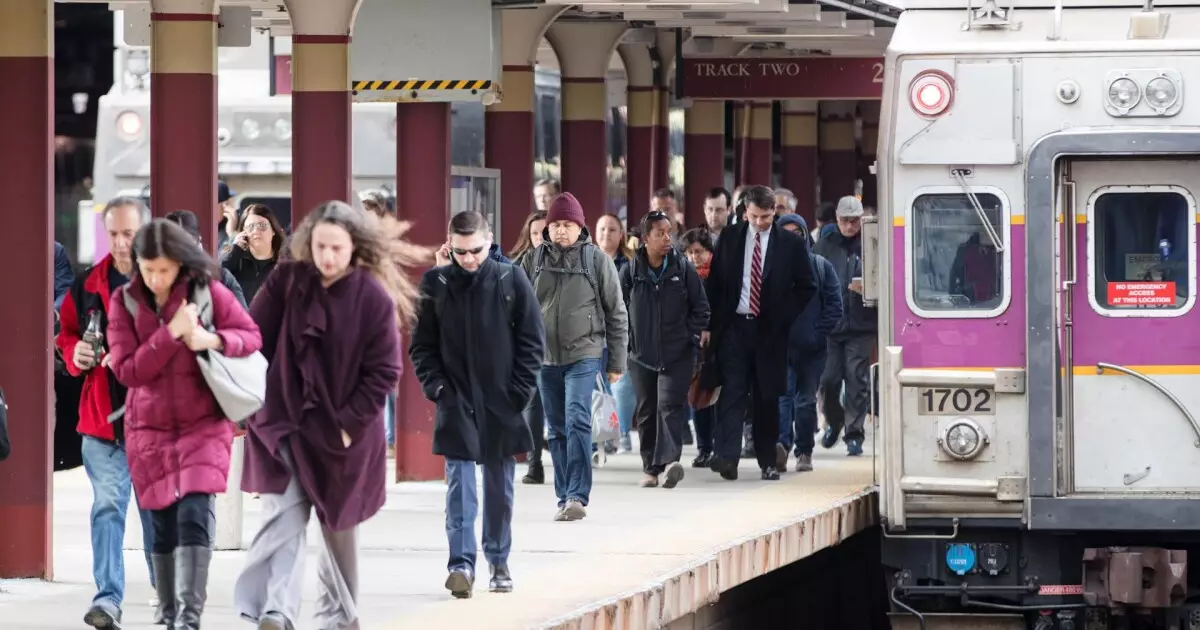In a decisive effort to enhance its transportation infrastructure, Massachusetts is set to issue $490.7 million in municipal bonds designed to finance improvements across the state’s commuter rail system and other vital transport projects. The bond sale, scheduled for this Wednesday, follows a retail order period precursory to pricing, which will encompass a complex structure featuring diverse bond categories tailored to meet specific funding needs.
The bond issuance will consist of three distinct series, each with its own earmarks. Notably, a $150 million revenue bond series is allocated to bolster the rail enhancement program, which is crucial for modernizing the aging transit network. Additionally, a $125 million tranche of sustainability bonds will specifically fund the infrastructure necessary for the Massachusetts Bay Transportation Authority’s (MBTA) South Coast Rail Project. This innovative project aims to reinstate commuter rail services connecting Boston with southeastern Massachusetts, a region historically deprived of such essential connectivity.
The third category, a substantial segment of $215.7 million in revenue refunding bonds, indicates a strategic approach not just to raise capital but to manage existing debt more effectively. The overarching objective of these initiatives is not merely to upgrade facilities, but to foster a more reliable and efficient service for commuters who have, for years, grappled with inconsistent train schedules.
In a statement underscoring the Massachusetts administration’s commitment, Phillip Eng, the General Manager and CEO of the MBTA, highlighted the ongoing efforts to ensure that the South Coast Rail Project adheres to the highest standards of quality and safety. This positions the project as a community-centric initiative aimed at reinstating trust in public transport—a sentiment echoed by regional advocates seeking reliable services amidst longstanding service challenges.
However, the backdrop of this ambitious project is not without financial hurdles. The MBTA has been grappling with significant funding deficits, exacerbated by ridership declines in the wake of the COVID-19 pandemic. The existing fiscal landscape threatens to worsen further, projecting a staggering shortfall of nearly $900 million by fiscal 2029. Historically, financial imbalances have been rooted in debt associated with previous large-scale investments, such as the Big Dig—an undertaking that remains the most expensive highway project in U.S. history.
With the South Coast Rail’s projected costs totaling approximately $990 million, state officials anticipate a mix of funding sources, including general obligation bonds and other municipal debt instruments. This multifaceted financial strategy certainly speaks to an urgent need for innovative solutions to sustain the transit system.
In light of pressing operational challenges, Massachusetts Governor Maura Healey has initiated a transportation funding task force tasked with crafting long-term financing strategies. This proactive measure reflects an understanding that sustainable funding mechanisms are essential for the MBTA’s future viability. Furthermore, the task force aims to accelerate improvements, including the eradication of slow zones on the subway system, thereby enhancing efficiency for daily commuters.
Despite the daunting challenges, market confidence appears robust. The bond issuance has received a AAA rating from S&P Global Ratings, underscoring the commonwealth’s strong economic backdrop and debt coverage abilities. This reflects optimism that, with prudent management, the financial engine driving the commuter rail can be reinvigorated. Similarly, the ratings from Kroll Bond Rating Agency and Moody’s Ratings bolster this perspective, positioning the bonds as a viable option for investors.
Massachusetts’ strategic bond issuance represents not only a commitment to enhancing public transportation but also an acknowledgment of the systemic challenges that have plagued the MBTA for decades. By securing funds for vital projects like the South Coast Rail, the state is taking significant strides toward reviving its transit infrastructure and, by extension, the economy. The forthcoming actions of state officials and the MBTA in addressing financial shortcomings and improving service reliability will ultimately determine the success of this ambitious endeavor, highlighting a critical juncture in public transit investment strategies.

